Helping your elderly parent manage arthritis while living at home
 It can be hard for those who don’t suffer from arthritis to understand the pain that arthritis can cause. Severe arthritis can have near debilitating effects. Gaining a greater understanding of arthritis and the pain associated with it can better prepare you to care for an elderly parent with arthritis.
It can be hard for those who don’t suffer from arthritis to understand the pain that arthritis can cause. Severe arthritis can have near debilitating effects. Gaining a greater understanding of arthritis and the pain associated with it can better prepare you to care for an elderly parent with arthritis. 
What is arthritis?
Arthritis is an inflammation of the joints, which is caused by the wearing away of surface cartilage that covers bone. After time, small bone pieces can break away, floating freely in the joint and causing more pain and inflammation. Eventually, bone spurs may develop at the ends of the creating more pain and inflammation.
How to help an elderly parent with arthritis
An article at Yahoo Voices offers a comprehensive list of ways to help. First, it’s important to see a doctor and have arthritis diagnosed. Once arthritis has been determined, here are some further steps you can take to help your elderly parent:
Discourage heavy labor and lifting
When an elderly person has been self-sufficient their entire lives, it may be hard to convince them that lifting heavy objects is contributing to their arthritis and subsequently causing them more pain. Help with any furniture rearranging that your elderly parent may need done. Put coasters beneath furniture so it can be slid rather than lifted to move.
Encourage slow, fluid motions
Exercise is still important for us as we age. Rather than vigorous exercise, encourage low impact exercises that cause less wear on joints.
Make rest for the elderly with arthritis mandatory
Resting can be crucial on days when arthritis is flaring up, but adequate rest can also prevent arthritis flare-ups.
Try cold packs for pain relief
Many doctors will recommend cold packs to help numb pain and manage arthritis. Keep several re-freezable cold packs stocked in the freezer for arthritis management. Keep in mind to keep a towel between the pack and skin
Changes in home
Several adjustments can be made to make living at home with arthritis more manageable. Something as simple as providing an electric can opener can make a big difference for the person with arthritis. Provide a tool for opening twist top jars, as well. Also, make opening packages easier by making sure that scissors and letter openers are at hand. Observe the arthritic person in their home, to note items that they use regularly but have to bend and stoop to get. Moving these for easier access is also another way to help.
Physicians Choice Private Duty can help
Physicians Choice Private Duty currently serving Omaha, Eastern Nebraska and Western Iowa provides seniors and their families a complete understanding of the options with facing an elderly person living with debilitating arthritis. Our professional staff can help properly implement the necessary lifestyle changes that will ensure the best quality of life for your aging parent.
All Physicians Choice Private Duty services are directed by registered nurses or social workers with no long-term contracts.
“Physicians Choice Private Duty solves the problems families face in finding home health care providers they can trust. Providers who will focus on strategies that keep parents in their homes. To learn more about our health care services, visit https://private-duty.firstcareco.wpengine.com/services/“

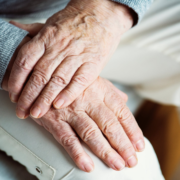

 The Omaha World-Herald
The Omaha World-Herald 
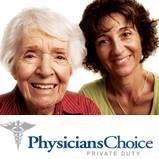
 Have you selected your nursing home yet?
Have you selected your nursing home yet?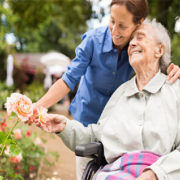
 Earlier this month, the American Association of Retired Persons (AARP) joined forces with the Ad Council to make a series of public service announcements depicting common, frustrating scenarios in the lives of millions of caregivers in the United States. As we’ve mentioned before, taking care of an aging loved can be very stressful, especially while balancing caregiving with day-to-day obligations such as working a full time job and taking care of children.
Earlier this month, the American Association of Retired Persons (AARP) joined forces with the Ad Council to make a series of public service announcements depicting common, frustrating scenarios in the lives of millions of caregivers in the United States. As we’ve mentioned before, taking care of an aging loved can be very stressful, especially while balancing caregiving with day-to-day obligations such as working a full time job and taking care of children.
 As someone providing support for an elderly parent, AgingCare.com offers some helpful advice on
As someone providing support for an elderly parent, AgingCare.com offers some helpful advice on 
 Iron imbalances — either too much or too little — in the elderly can cause numerous problems. While many may assume that these imbalances involve a deficiency, it’s more likely in Westernized societies that the imbalance will involve too much iron.
Iron imbalances — either too much or too little — in the elderly can cause numerous problems. While many may assume that these imbalances involve a deficiency, it’s more likely in Westernized societies that the imbalance will involve too much iron.
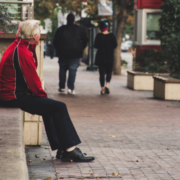
 Feeling isolated and alone can be difficult to handle at any age, but the problem is compounded with the elderly because it can lead to health concerns such as loss of physical functioning and even early death.
Feeling isolated and alone can be difficult to handle at any age, but the problem is compounded with the elderly because it can lead to health concerns such as loss of physical functioning and even early death. 


 Genworth Financial’s Dr. Bruce Margolis recently wrote a great piece for the
Genworth Financial’s Dr. Bruce Margolis recently wrote a great piece for the  Unexpected sign of Alzheimer's may help predict it
Unexpected sign of Alzheimer's may help predict it Studies have found an unexpected link between physical coordination and cognitive decline, including Alzheimer’s.
Studies have found an unexpected link between physical coordination and cognitive decline, including Alzheimer’s.
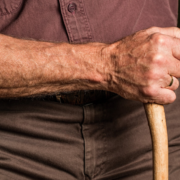

 The
The